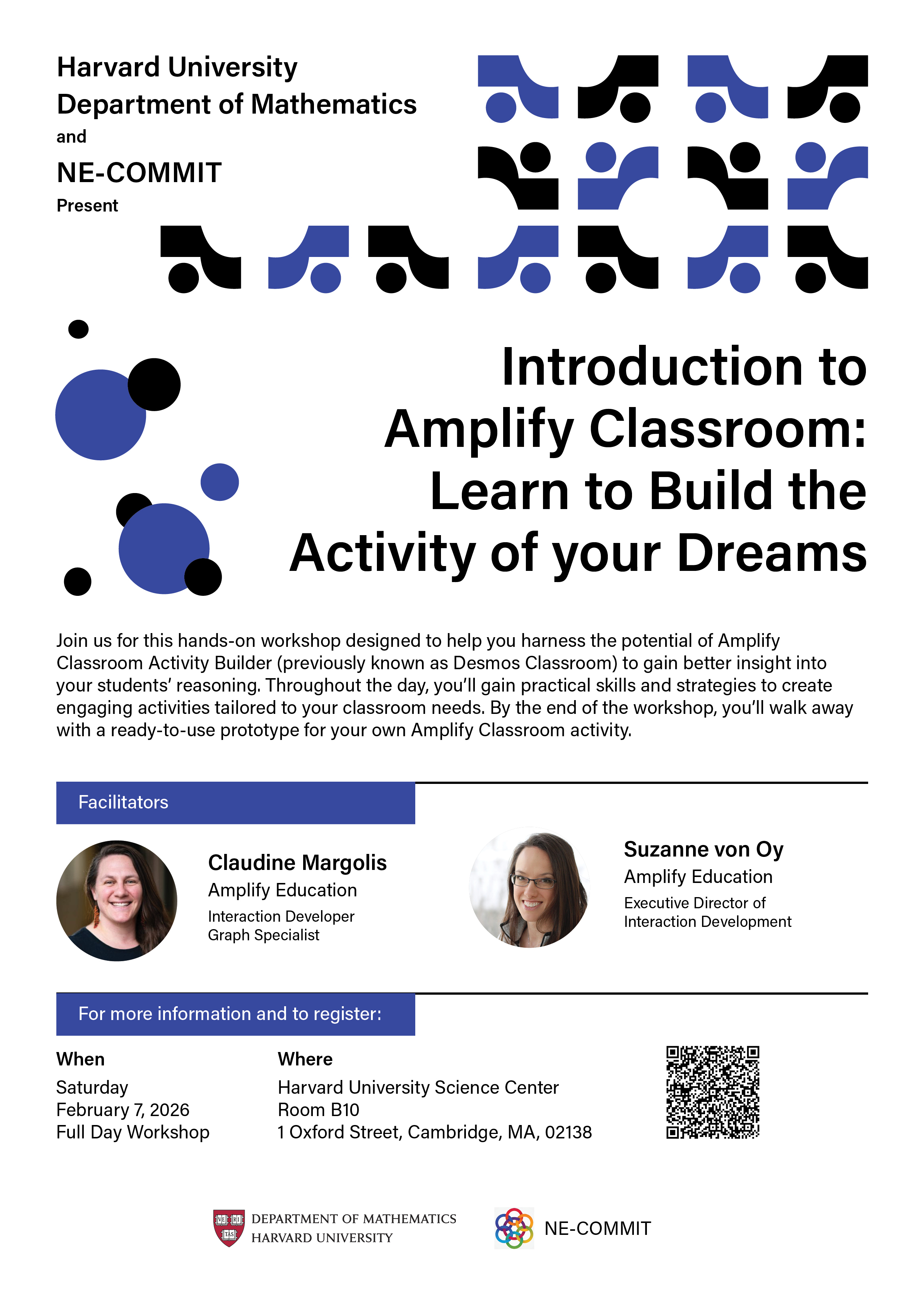The American Mathematical Society (AMS) awarded the 2026 Leroy P. Steele Prize for Seminal Contribution to Research to Harvard Merton Professor of Mathematics Horng-Tzer Yau,...
Read more
The American Mathematical Society (AMS) honored two Harvard math graduates with the 2026 Frank and Brennie Morgan Prize for Outstanding Research in Mathematics by an...
Read more
Congratulations to all the Harvard students named among the American Rhodes Scholar Class of 2026! Among them are two math concentrators, seniors Jay Chooi and...
Read more



